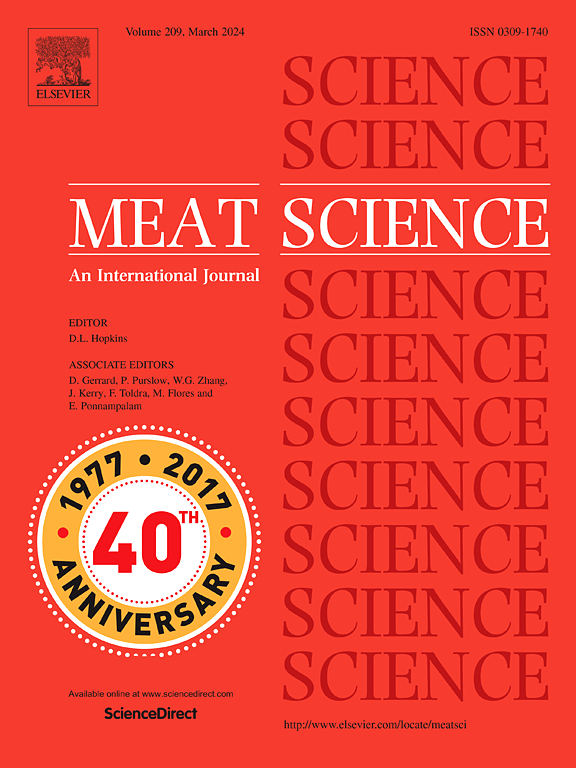Future cattle production: Animal welfare as a critical component of sustainability and beef quality, a South American perspective
IF 7.1
1区 农林科学
Q1 Agricultural and Biological Sciences
引用次数: 0
Abstract
The demand for animal protein is rising, increasing pressure on animal production systems and ecological resources. Ethical and environmental concerns are also growing worldwide, pushing for more sustainable food production systems. The international scientific community has raised concerns about misinformation regarding meat production processes and their harmful impact on the environment, animal welfare and human health consumption. It is crucial to provide accurate information based on science, implement an active communication strategy, and foster collaboration across the meat supply chain to demonstrate that livestock farming is part of the solution to climate change and sustainability issues. As a fundamental pillar of sustainability, animal welfare plays a crucial role in this scrutiny. The “social license to farm” hinges on animal welfare issues and those related to climate change, the environment and biodiversity. Animal welfare is gaining relevance in the market of farm animals and their products, shaping a nation's standing in the international community. Considering the potential advantages of the Southern cone of South America production systems regarding sustainability and animal welfare, several countries prioritise them in their science, technology transfer, innovation, and public policy agendas. Scientific research indicates that implementing effective animal handling and welfare practices has a demonstrably positive impact on individual animal temperament, the quality of the human-animal relationship, overall productivity, and meat quality while reducing the risks of accidents. Caring for the welfare of animals is not only a moral imperative but can also be a business decision that benefits all stakeholders.
未来的养牛业:动物福利是可持续性和牛肉质量的重要组成部分,南美视角。
对动物蛋白质的需求不断增加,从而加大了对动物生产系统和生态资源的压力。全世界对道德和环境的关注也在不断增加,从而推动建立更具可持续性的食品生产系统。国际科学界对肉类生产过程中的错误信息及其对环境、动物福利和人类健康消费的有害影响表示担忧。至关重要的是,要以科学为依据提供准确信息,实施积极的沟通战略,促进整个肉类供应链的合作,以证明畜牧业是气候变化和可持续发展问题解决方案的一部分。作为可持续发展的基本支柱,动物福利在这一审查中发挥着至关重要的作用。养殖的社会许可 "取决于动物福利问题以及与气候变化、环境和生物多样性相关的问题。动物福利在农场动物及其产品市场中的相关性越来越大,影响着一个国家在国际社会中的地位。考虑到南美洲南锥体生产系统在可持续性和动物福利方面的潜在优势,一些国家在其科学、技术转让、创新和公共政策议程中将其列为优先事项。科学研究表明,实施有效的动物饲养和福利措施对动物个体的性情、人与动物关系的质量、整体生产率和肉质都有明显的积极影响,同时还能降低事故风险。关注动物福利不仅是道德要求,也是一项有利于所有利益相关者的商业决策。
本文章由计算机程序翻译,如有差异,请以英文原文为准。
求助全文
约1分钟内获得全文
求助全文
来源期刊

Meat Science
工程技术-食品科技
CiteScore
12.60
自引率
9.90%
发文量
282
审稿时长
60 days
期刊介绍:
The aim of Meat Science is to serve as a suitable platform for the dissemination of interdisciplinary and international knowledge on all factors influencing the properties of meat. While the journal primarily focuses on the flesh of mammals, contributions related to poultry will be considered if they enhance the overall understanding of the relationship between muscle nature and meat quality post mortem. Additionally, papers on large birds (e.g., emus, ostriches) as well as wild-captured mammals and crocodiles will be welcomed.
 求助内容:
求助内容: 应助结果提醒方式:
应助结果提醒方式:


